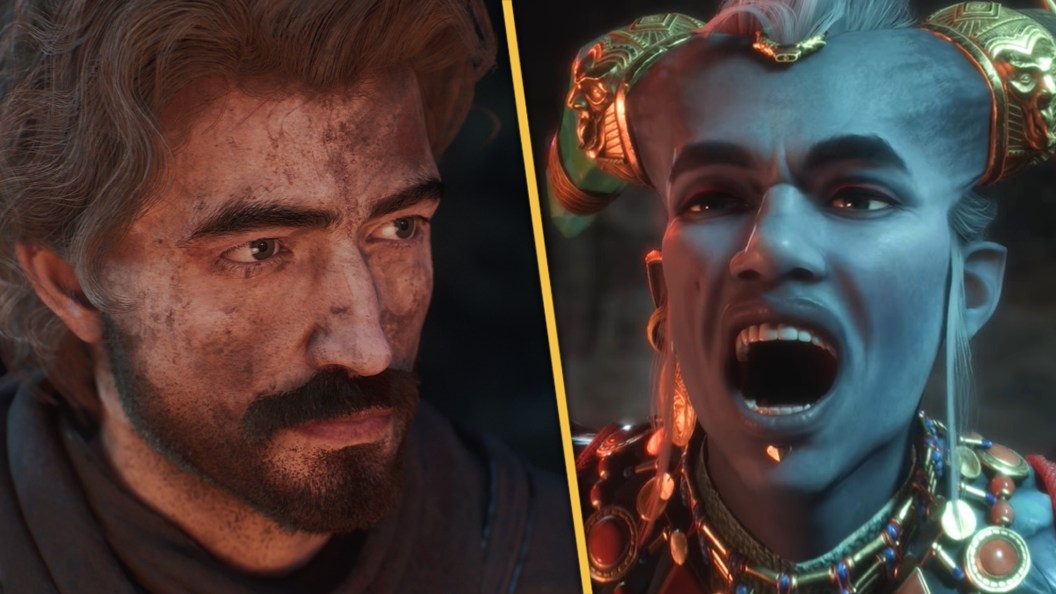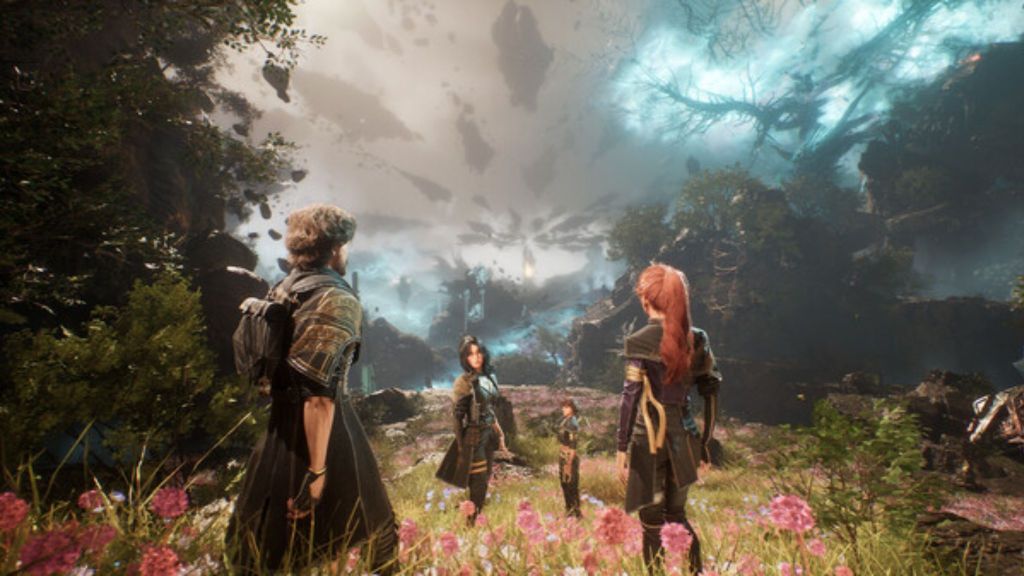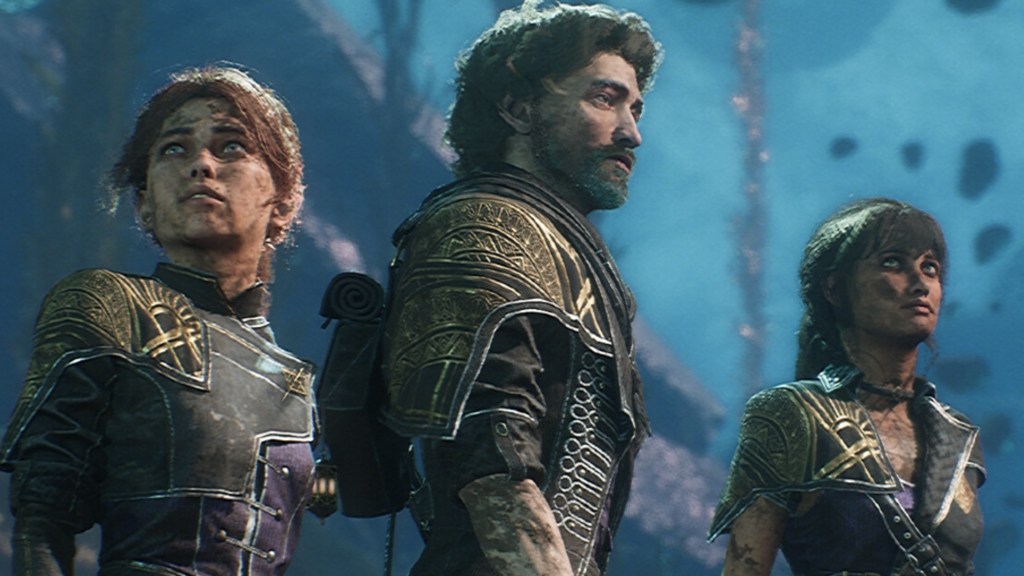
Leading up to its release in October of 2024, BioWare fans were cautiously optimistic about Dragon Age: The Veilguard and what it might deliver to the well-loved franchise. However, after half a year on the market, Veilguard sits with mixed reviews on Steam, and the general consensus from players that something was missing from the game – a critical element that prevented it from being the epic adventure everyone wanted.
As of April 2025, a new RPG adventure made by Sandfall Interactive, a team with talent from AAA studios like Ubisoft, has shed light on what was missing from The Veilguard. Clair Obscur: Expedition 33 has launched to an immediate positive reception from gamers, delivering a story that pulls the player in like an excellent book. Right from the prologue, there is magic in the way events unfold, compelling you to move forward and discover the secrets hidden in the strange, fantasy setting.
There are three things that make Clair Obscur triumphant over a long-time AAA series like Dragon Age, and they are elements that other RPG games should consider if they want to stand up to incredible developers like Sandfall Interactive. Combined, they are the driving factor for why players will be thinking about Clair Obscur for decades to come, while The Veilguard sits forgotten in digital libraries, gathering dust.
No Self-Insert Characters
It might be blasphemous to say this in the era of character creators, romance options, and player-driven storylines, but Clair Obscur: Expedition 33 soars to new narrative heights thanks to a lack of “self-insert” main characters.
One of the biggest struggles when making a game where the main character is a slot for the player to inhabit is that the story can’t be built to include that character’s existence. Even when picking a background or fighting style, these details don’t typically have a large impact on the main narrative; just on how the player perceives their character. This creates a situation where the story has to be carried by the non-playable characters and world, leaving the main character distractingly disconnected from events.
The Veilguard is an excellent example of this disconnect. Rook has very little backstory in a world that has been built over multiple games. Beloved characters like Lace Harding, Solas, and Varric are so much more developed to the point they overshadow Rook, making it hard to become invested in the thin backstory and motives this self-insert shell possesses.
The same can also be said about Baldur’s Gate 3 to a point, though Tav is a much stronger character thanks to the D&D background that helps prop the story up. Despite this, the story is specifically driven by the characters around Tav, with their actions acting as catalysts to outside narratives, rather than the series of events being wrapped around you as the main character.
Clair Obscur takes a note out of much older franchises. Players follow Gustave, Maelle, Lune, and Sciel as they attempt to take down a monstrous, almost godlike enemy. Because the characters aren’t acting as a shell for the player, they have expansive backstories, and their existences are worked into the narrative. This type of storytelling bonds the player to the character as they become curious about who they are, what they are doing, and what their role in the greater story will be.
This is very reminiscent of Cloud from Final Fantasy VII, Ezio from Assassin’s Creed, and Starkiller from Star Wars: The Force Unleashed. In these games, the story unfolds almost as if players are reading a book. The progression feels more cohesive and streamlined because the main character doesn’t have to be a neutral fit for all players. Players also develop a genuine interest in the motives of the character, focusing less on what they want, and more on how the strengths and flaws of this imaginary person will change and guide the story. You aren’t responsible for their bad choices, but their flaws make them relatable and interesting.
While there is a time and a place for self-inserts, they have to be done in a way that works with the plot. If that isn’t possible, like with Rook, it is better to play as a pre-designed character with a driven purpose and developed place in the story.
Clair Obscur: Expedition 33 Shows Without Telling

Related: All Clair Obscur: Expedition 33 Voice Actors (And Where They’re From)
Clair Obscur: Expedition 33 has also pulled on another important storytelling tactic that isn’t seen in many RPG games currently. Instead of giving the player all the information for the story via large lore dumps, menu encyclopedias, or character monologues, it relays information via the environment and character interactions, and not all of it is immediately clear.
Unlike in Dragon Age: The Veilguard, where Rook’s purpose is dumped on you via conversations with Varric and almost cringey cutscenes, Clair Obscur gives hints of what is happening through context clues in a way that feels natural to the story and the setting. Why would a character give a long-winded breakdown of what is happening when everyone in the setting presumably has been living it their entire lives? Instead, Clair Obscur invites player curiosity via heartbreaking conversations, flowers dropped around the necks of specific individuals, and a festival so macabre that any show of joy imparts a sense of fake optimism.
You begin to draw your own conclusions about what is happening and how the characters are involved, all without conversation trees, a morality system, or approval meters. Your goal is to be immersed, not rig the system for an outcome, and that makes involvement in the story feel more natural.
One of the areas where I struggled the most with The Veilguard was that I never felt like the story clicked. I kept waiting for that moment when I wanted to explore, understand, or discover, but it just never happened. I went from one map to the next, completed objectives, and went through conversations, but it felt like walking through a museum where all the events were locked behind glass. I could look, I could read the tags, but I couldn’t truly touch anything.
What was harder than just trying to care about the story was trying to engage with the characters. Because the endgame was to craft a romantic relationship, I found myself much less interested in what the characters had to say, and much more focused on trying to say the right thing to get their approval up. This made every choice feel arbitrary and pointless. Your character is basically wet clay you mash into whatever lumpy bowl best fits the situation you want. It feels pointless, and after a while, boring. Especially because everything about these characters has been fed to you via dialogue breaks, rather than actually doing anything with them.
In Clair Obscur, Sandfall had me wrapped around Gustave in ten minutes. From his broken, puppy-dog smile to the way he clutches at Sophie’s hand on the docs, I knew he was going to be the kind of character who would stay with me forever. No matter what his outcome, I’ll be thinking about this sad, broken, heap of a man in my rocking chair sixty years from now, tight-chested and emotional in the exact same way I still feel about Vincent Valentine from FF7.
Sandfall gives you the humanity before the facts, and encourages you to explore the world to learn more, which creates a constant and driven hunger that will propel you through the game. That is what great RPGs are made of. Without curiosity and that need to discover, players lose interest, and eventually put the controller down.

You Aren’t The Hero
One of the things I like best about Clair Obscur, is that it isn’t made to make the player feel like a hero. Modern RPGs spend a lot of time trying to give players a way to escape and play god in a sandbox. It’s refreshing to play a game where the point of it isn’t to allow me to craft some story where I’m in charge.
I want to know what drives Gustave forward. I want to understand Maelle’s past and why she is so anxious to get away from safety, even though she is so young. I want to know what broke this world. I love that my feelings, my desires, and my wants aren’t a part of this journey. I am excited to watch as this agonizing tale unfolds completely free of my desires of will.
Clair Obscur: Expedition 33 ensures that I never feel like my personal self is part of the story, and that makes it better than any other RPG I have played in years. It was the magic that Dragon Age: The Veilguard needed but never hit, and it is the element that lets a story truly shine without being held back by the nuances of appeasing everyone.
Sometimes, it’s okay for our personal selves to be removed from a story, so that it can truly be its own work of art.
The post Clair Obscur: Expedition 33 Avoids Dragon Age: The Veiguard’s Biggest Mistake Thank To Three Key Things appeared first on ComicBook.com.
